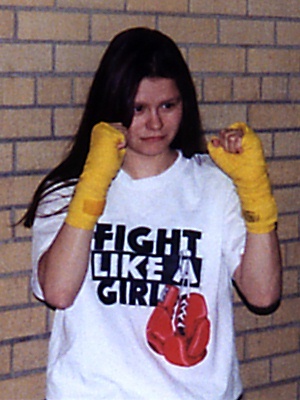All Nonfiction
- Bullying
- Books
- Academic
- Author Interviews
- Celebrity interviews
- College Articles
- College Essays
- Educator of the Year
- Heroes
- Interviews
- Memoir
- Personal Experience
- Sports
- Travel & Culture
All Opinions
- Bullying
- Current Events / Politics
- Discrimination
- Drugs / Alcohol / Smoking
- Entertainment / Celebrities
- Environment
- Love / Relationships
- Movies / Music / TV
- Pop Culture / Trends
- School / College
- Social Issues / Civics
- Spirituality / Religion
- Sports / Hobbies
All Hot Topics
- Bullying
- Community Service
- Environment
- Health
- Letters to the Editor
- Pride & Prejudice
- What Matters
- Back
Summer Guide
- Program Links
- Program Reviews
- Back
College Guide
- College Links
- College Reviews
- College Essays
- College Articles
- Back
The Cost of Trickle-Down Feminism
On November 8th, 2016, soon after Donald Trump was announced as the winner of the 58th United States presidential election, media outlets and feminists expressed major outrage at Hillary Clinton’s loss. Voters who had been enraptured by the prospect of the first American female president showed heavy backlash against Clinton’s defeat. This heated reaction is understandable given the frustratingly intractable nature of gender inequality; despite the rise of feminism to mainstream consciousness and stronger female political participation, only 16 women were heads of government out of 193 countries in 2017. Precisely due to such few real-world examples of women leaders, individuals have adopted overly optimistic views of what a female president can achieve, such as zero wage gaps, cheap maternal healthcare, and paid maternal leave. Unfortunately, although Clinton’s run for office was truly sensational and sparked mass public support for female presidency, female leaders do not signify the automatic liberation of women and have rather proven to be ineffective in improving women’s lives. Public attention to, verging on obsession with, female leadership comes at the cost of real change for women.
Similarly to male presidents, female leaders are not only governed by political interests that restrict their ability to advocate for women’s rights issues, but may also implement unsuccessful policies that fail to effectuate social change. Former president of South Korea, Park Geun-hye, is one female leader who did not advance women’s rights. Park was impeached in 2017 due to scandalous records of bribery, extortion, and conspirations with her childhood friend Choi Soon-sil. According to feminists, Park’s scandalous impeachment was taken as evidence that “women are not qualified for politics.” Male commenters online have mocked Park with a Korean saying, “If a hen crows, the household collapses,” meaning order collapses when women are in charge. During her campaign, she scarcely mentioned women’s issues for fear of losing support from older, socially conservative voters. Once elected, she appointed only two women to seventeen cabinet posts, one fewer than her male predecessor. As a South Korean female myself, I can testify that no advancement of women’s rights occurred during her presidency. While South Korea is one of a few countries that elected female presidents, it still ranks 118th out of 141 on the World Economic Forum’s Gender Gap index - behind all its “less developed” Southeast Asian neighbors. Despite being an OECD country, women are paid 37% less than their male counterparts.
Park is not an outlier among a group of exemplary female leaders. Theresa May, Prime Minister of the United Kingdom, was also passive on gender inequality. Despite passing a “coercive control” law to combat domestic violence in 2015, it was only used 62 times - a minute number compared to the 1.2 million incidents that occur annually to women in the UK. If May had applied pressure, some of the 319 women killed in their homes from 2014-2016 - 97% of which were perpetrated by men - could have been saved.
Similar records of failure even extend to Myanmar’s leader Aung San Suu Kyi, winner of the Nobel Peace Prize, who refused to address reports of her military gang-raping Rohingya women.
Sweden, which tops global gender equality rankings, has done so without electing a female head of state. Excessive focus on electing a female leader conveys the message that women must passively wait for victory in elections to feel empowered. Grassroots feminist movements like #MeToo - no matter how transgressive they might seem - engage women from every race, nationality, culture, religion, and tax bracket, which make them more valuable than one woman with a title. By articulating their personal experiences, appealing for social attention, and pressuring policy-makers, women can transform society, one corner at a time, without enlisting the help of a single individual in power. Let’s not train our gaze on the glass ceiling.

Similar Articles
JOIN THE DISCUSSION
This article has 0 comments.

Jiwon is a junior in high school in Songdo, South Korea. She is interested in issues regarding feminism, gender, sexuality, ethnicity, and international relations.